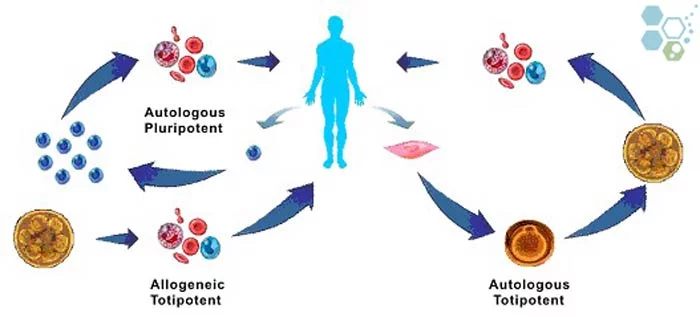
As opposed to autologous stem cells, allogeneic stem cells are isolated from donors then expanded into different cell lineages before given to patient needing a mesenchymal stem cell transplant. Unlike autologous cells allogeneic cells do not require surgical or painful extraction methods and can be safely given to replace patients own stem cells that have been destroyed by disease, injury of treatments requiring or high doses of chemotherapy. Allogeneic stem cell transplants have been used to suppress diseases and proactively treat rebuild patient immune systems for over 50 years mainly to treat blood related cancers, such as lymphoma, leukemia and other types of diseases like lung cancer, pancreatic cancer, liver cancer or auto-immune system disorders.
iframe src=”https://www.youtube.com/embed/i7EN6l9wqDU?rel=0&controls=0&showinfo=0″ width=”640″ height=”480″ frameborder=”0″ allowfullscreen=”allowfullscreen”>
Some sources of allogeneic stem cells include:
Allogeneic Stem Cell Transplants
Stem cells are also present inside different types of human tissue including:
However, stem cells can be difficult to extract and culture for medical use. Cells can also stay in a non-dividing / non-specific form for years until the body recruits them to repair or grow new tissue or begin the healing process after injury.
If you've seen people take ice baths or cold showers and wondered if they're onto… Read More
Immunomodulation stands at the forefront of biomedical research, steering the immune system's ability to fight… Read More
Stem cell research leads the charge in medical innovation, heralding revolutionary advances in regenerative medicine.… Read More
The blood-brain barrier (BBB) is a crucial shield for the brain, regulating the entry of… Read More
While peptide bonds are fundamental to protein structure, their direct relationship with stem cells lies… Read More
When discussing cutting-edge cancer treatments, NK cell therapy stands out due to its unique approach… Read More